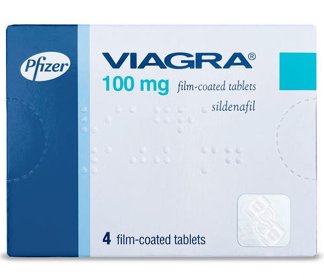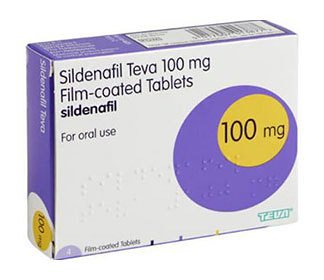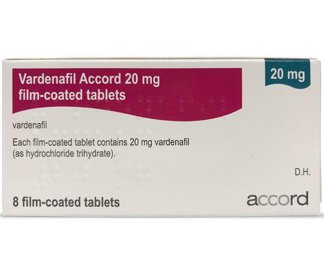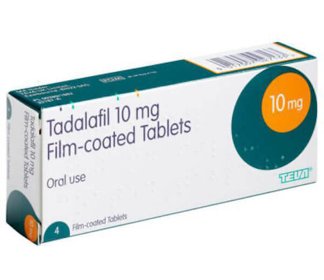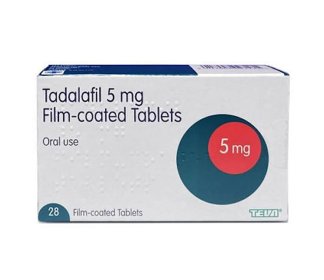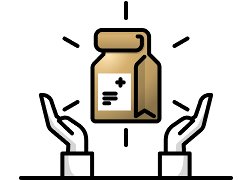
Erectile dysfunction, often referred to as ED, is a common problem affecting millions of men worldwide. Understanding erectile dysfunction involves recognizing how it impacts one's ability to achieve and maintain an erection suitable for sexual intercourse. This dysfunction can occur due to a complex interaction of physical and psychological factors. Some individuals may experience erectile challenges sporadically, while for others, the dysfunction may be chronic. It’s crucial to grasp what erectile dysfunction truly entails to approach it effectively. By identifying the underlying causes, whether they’re physical or psychological, one can take appropriate steps toward achieving better sexual health. The symptoms of erectile dysfunction vary and can include a reduced desire for sexual activity or complete inability to achieve an erection. Gaining a deeper understanding of erectile dysfunction will empower individuals to seek appropriate treatments and improve their overall wellbeing.
Erectile dysfunction (ED) is a common medical condition affecting many men, where the ability to achieve or maintain an erection suitable for sexual activity is impaired. Understanding erectile dysfunction is crucial, as it often serves as a signal for other potential health issues. Poor blood flow is a typical cause of ED, and it's important to address these underlying factors to improve overall health. The NHS provides comprehensive health information related to erectile dysfunction, helping individuals identify if ED is related to specific diseases. Clinics specializing in sexual health offer guidance and solutions for managing erection problems. When considering treatments, it's essential to consult with a healthcare provider to determine the most appropriate course of action tailored to one's health. Recognizing the signs and understanding what erectile dysfunction encompasses can empower individuals to seek the proper medical advice and improve their quality of life.
Erection problems are common and can be attributed to a variety of health issues affecting the blood supply to the penis. One of the common causes is cardiovascular disease, which can impede proper blood flow. Diabetes is another prevalent health condition linked to erectile dysfunction due to its impact on blood vessels and nerves. Besides these, hormone problems, including low testosterone levels, can lead to erection difficulties. Managing these health conditions effectively is essential in addressing erectile dysfunction. Regular exercise, a balanced diet, and monitoring one's cardiovascular health can play a vital role in preventing erection problems. Understanding the underlying common causes, such as diabetes or cardiovascular disease, equips individuals to take proactive measures. Hormone problems should also be evaluated under medical guidance to identify appropriate treatments and improve sexual health. Identifying these triggers can assist in finding suitable erectile dysfunction solutions.
Erectile dysfunction (ED) can result from various physical causes involving blood circulation and hormonal imbalances. The blood vessels play a crucial role in achieving and maintaining an erection, as they ensure adequate blood flow to the penis. Conditions such as blood-related diseases can impair this process, leading to ED. For individuals with diabetes, the risk of damage to blood vessels further complicates blood flow, exacerbating erection difficulties. Moreover, hormonal issues can cause hormone problems that disrupt sexual function. When diseases affect the blood or its vessels, blood flow becomes compromised, making erections more challenging to achieve. Understanding these physical causes is essential for addressing ED effectively. Identifying issues with blood, whether due to diabetes, diseases, or hormone problems, can guide appropriate treatment strategies to improve sexual health and manage erection concerns, offering effective solutions for those experiencing ED.
Understanding the psychological causes of erectile dysfunction can be crucial in addressing erection problems effectively. Psychological factors often contribute significantly to dysfunction, with common reasons including stress, anxiety, and depression, all affecting sexual health. Many men feel overwhelmed when grappling with questions about their mental well-being in relation to erection issues. This emotional turmoil can exacerbate the situation, leading to a vicious cycle of psychological distress and sexual performance difficulties. Addressing these mental health concerns is vital for improving one's sexual health and enhancing overall quality of life. In addition to managing psychological symptoms, seeking professional guidance is often recommended. Therapies and counselling options are available to support emotional health, allowing individuals to confront and manage the feelings that may lead to ongoing erection problems. Exploring these solutions can offer hope to those experiencing erectile dysfunction, facilitating a pathway to healthier relationships and improved sexual satisfaction.
Recognising the symptoms of erectile dysfunction is crucial for understanding the challenges associated with erection problems. Patients often feel anxious or embarrassed when they experience dysfunction, but it's essential to address these health concerns openly. Symptoms may include difficulty achieving or maintaining an erection, reduced sexual desire, or a decrease in confidence when it comes to sexual health. Health professionals urge patients to discuss any changes they feel with their erection and overall sexual health without hesitation. By understanding the symptoms, patients can take the necessary steps toward finding solutions and improving their sexual well-being. It's vital to remember that erection problems can be symptoms of an underlying health condition, and consulting a healthcare provider is recommended for a thorough assessment. Identifying these issues early increases the opportunity for effective treatment and enhances both physical and emotional health.
Diagnosing erectile dysfunction is a crucial step in addressing the condition effectively. When experiencing symptoms, visiting a GP or a specialized clinic is advisable. The doctor will inquire about your medical history and may suggest tests to determine underlying conditions contributing to erectile dysfunction. Blood tests, urine tests, and physical examinations are common approaches in diagnosing erectile dysfunction. It's essential to have open communication with your GP, as this can lead to a more comprehensive understanding of your specific situation. Stress, anxiety, and other psychological factors can also play a role, so the doctor might explore these alongside physical conditions. Accurate diagnosis is vital since treating erectile dysfunction effectively relies on identifying the underlying causes. If you're experiencing persistent problems, don't hesitate to seek professional advice, as early intervention often leads to better outcomes in managing this common issue.
Erectile dysfunction (ED) can significantly impact a patient's quality of life, and it's important to understand when to seek medical advice. If you're experiencing persistent issues, don't hesitate to consult a healthcare professional. The NHS recommends seeking a doctor if the problem lasts for more than a few weeks. A timely diagnosis can ease concerns and ensure effective treatment. When you visit your healthcare provider, prepare any questions you might have about symptoms and treatment options. Your doctor will work with you to find the most suitable solutions. Whether it involves further testing or lifestyle changes, seeking medical advice is critical for your wellbeing. It's essential that patients feel comfortable discussing these issues with their healthcare provider, reassuring them that they're not alone. Taking control of your health by asking questions and following through with recommended actions ensures you stay on the path to recovery.
When diagnosing erectile dysfunction, various tests and procedures can be utilized by your doctor at the clinic. These diagnostics play a crucial role in determining the underlying causes of this condition. Services offered might include blood tests, which can help detect underlying health issues. Your doctor may also perform other important examinations, like a physical exam or an ultrasound, to assess penile blood flow. During your appointment, the clinic might employ psychological evaluations, as mental health can significantly influence erectile issues. For those utilizing NHS services, understanding their process for diagnosing erectile dysfunction can ensure a comprehensive approach to treatment. Each patient will undergo tailored procedures to accurately diagnose what's contributing to their erectile dysfunction. By engaging in appropriate tests and procedures, patients can receive a more precise diagnosis, paving the way for effective treatment solutions to improve their quality of life.
Treating erectile dysfunction can involve a variety of treatment options tailored to individual needs. Different approaches to treating erectile issues may include medications that help improve blood flow and achieve firmer erections. It's essential to consult a doctor to explore the most suitable treatment for you. A healthcare provider can guide you through the available treatment options, discussing potential benefits and side effects. Besides medications, other forms of treatment like lifestyle changes, therapy, and counselling are essential components when treating erectile dysfunction. With the help of healthcare professionals, you can create a comprehensive plan to manage erectile challenges effectively. Remember, the earlier you seek medical advice from a doctor, the better your chances are of finding a treatment option that works for you. Don't let erectile dysfunction define your life; instead, take active steps toward overcoming it.
For those seeking effective erectile dysfunction treatment, combining medications with lifestyle adjustments can significantly improve erection issues. Medications remain a leading treatment choice, helping many regain confidence by effectively managing erectile conditions. It's essential to consult with healthcare professionals to determine the right medication and dosage tailored to individual health needs. Alongside medications, adopting a healthier lifestyle can enhance overall well-being. Regular exercise, a balanced diet, and sufficient sleep can contribute positively, while reducing stress and quitting smoking further benefit erection health. Lifestyle changes can be as impactful as medications, forming a strong foundation for improved sexual performance. It's crucial to address both physical and emotional factors, working closely with healthcare providers to develop an integrated dysfunction treatment plan. Embracing these medications and lifestyle strategies can empower those struggling with erectile conditions to achieve better sexual health outcomes.
When seeking solutions for erectile dysfunction (ED), exploring therapies and counselling options can be vital components of comprehensive care. Various therapies focus on addressing the underlying conditions that contribute to ED, while counselling addresses psychological factors. Engaging with healthcare services is crucial, as it allows the patient to discuss these therapies thoroughly with their GP. Counselling provided by healthcare professionals can help individuals and couples manage the emotional aspects of ED, improving communication and relationships. The NHS offers a range of services designed to support men dealing with ED. Patients are encouraged to consult their GP to access these resources and determine the best therapeutic approaches for their needs. By blending therapies with counselling, patients can develop a tailored strategy that enhances overall well-being and promotes better health outcomes, effectively managing erectile dysfunction conditions.
Enhancing your sexual health involves various strategies that focus on improving the quality of your erections and overall well-being. Engaging in regular physical activity can boost your blood flow, which is crucial for achieving and maintaining quality erections. Healthy blood circulation ensures that you feel more energised and ready for intercourse. It's important to prioritize not just physical health but also psychological factors that can impact your sexual experience. Addressing any mental health concerns can significantly improve your sexual performance and confidence. Including a balanced diet rich in nutrients helps in improving blood flow, enhancing your sexual health, and ensuring a fulfilling intercourse experience. Take steps to manage stress and incorporate relaxation techniques to enhance your overall health and feel your best. By addressing these areas, you can improve both your physical and emotional aspects of sexual health - erectile dysfunction.
Addressing erection problems naturally involves exploring various approaches that can enhance health and improve one's overall wellbeing. Understanding the common causes of such problems is crucial before taking steps to address them naturally. Many individuals seek to resolve these issues without medication by focusing on lifestyle changes and natural remedies. These might include improving health through balanced nutrition, regular exercise, and stress management techniques. Such practices can have a common beneficial impact on health and potentially ease erection issues. By addressing common lifestyle factors like smoking and alcohol use, or incorporating relaxation methods like meditation, people often find they can handle erection problems more effectively. Naturally, integrating these health-conscious choices into daily life can have a significant positive influence. It's essential to remember that addressing erection difficulties naturally can lead to a healthier and more fulfilling life.
The future of ED treatments is promising, with innovative technologies paving the way for breakthroughs in managing erectile dysfunction. Ongoing research and developments in the sciences are uncovering new methods to enhance blood flow and address the root causes of ED. Today, scientists are exploring cutting-edge technologies that harness the body's natural functions to improve erection quality. Furthermore, advancements in regenerative medicine are offering renewed hope for those affected by erectile dysfunction. As research continues, personalized treatment plans based on an individual's unique physiological makeup become attainable, ensuring better chances of success. These developing innovations hold the potential to transform how ED is treated, focusing not just on symptoms but addressing the core issues. With commitment from the scientific community, the future looks bright for patients seeking more effective and sustainable ED solutions. As we move forward, the integration of these technologies promises a new era for erectile dysfunction treatment.
In recent years, innovative research has ushered in a wave of exciting new developments in the sciences of erectile dysfunction. As scientists delve deeper into understanding the link between diseases and erection issues, groundbreaking studies are emerging. These innovative studies have identified novel relationships that can lead to more effective solutions for overcoming erection challenges. By emphasizing new developments, researchers are broadening our comprehension of how various diseases might trigger erection problems. The sciences surrounding erectile dysfunction are not only evolving, but they're also paving the way for advancements in treatment options. With this innovative research, there is optimism for new therapies that could offer relief to those affected. As these developments continue to progress, healthcare professionals remain hopeful about providing better, more targeted care to patients. By exploring the link further, the future of erectile dysfunction treatment is bound to benefit from these ongoing efforts.
Preventing erectile dysfunction (ED) is a crucial aspect of maintaining men's overall health. A proactive approach to healthcare involves adopting a healthy lifestyle, which can significantly reduce the risk of this condition. Among the lifestyle changes, exercise and a balanced diet are paramount in preventing dysfunction and promoting optimal blood circulation. Avoiding smoking and excessive alcohol consumption is also beneficial. Moreover, managing stress and maintaining a healthy mental state can help prevent erectile dysfunction, as psychological factors are often contributors. The National Health Service (NHS) provides valuable resources and advice for preventing this disease effectively. Regular check-ups and open communication with healthcare professionals ensure that any early signs of ED are addressed promptly. By taking these preventive measures, men can decrease their likelihood of experiencing erectile dysfunction, leading to improved sexual health and overall well-being.
Living with erectile dysfunction can be challenging for men and affect their overall quality of life. Patients experiencing this condition may feel overwhelmed, but it's crucial to understand that they're not alone. Numerous healthcare options and support networks exist to help navigate these challenges. By maintaining open communication with healthcare providers, men can find personalized strategies to improve their quality of life. From lifestyle adjustments to medical treatments, each approach aims to enhance the patient's wellbeing. It's essential for men to feel empowered and informed about managing their erectile dysfunction, ensuring they take an active role in their healthcare journey. Addressing the emotional and physical aspects of the condition can significantly impact a patient's outlook and quality of life. Ultimately, by adopting proactive measures, men can thrive while living with erectile dysfunction and enjoy a fulfilling, satisfying life despite these conditions.


